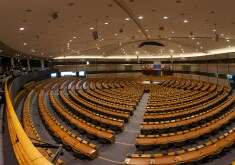
Sinicization: Culture or Politics?
In his incisive Christianity Today article titled “Xi Jinping Is Not Trying to Make Christianity More Chinese,” Purdue University professor Fenggang Yang draws a distinction between Sinicization, or the cultural adaptation of religion to Chinese culture, and what he calls “Chinafication,” a more literal translation of the Chinese term Zhongguo hua (中国化) used in the current “Sinicization of religion” campaign.














